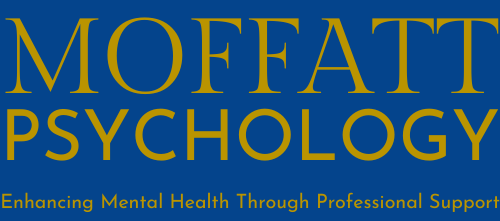Supporting employees who experience workplace harassment is not just a moral obligation but also a critical component for a healthy, productive work environment. At Moffatt Psychology, we are committed to enhancing mental health through professional support, and addressing workplace harassment is an essential aspect of this mission.

Understanding Workplace Harassment
Workplace harassment can manifest in various forms including verbal abuse, bullying, sexual harassment, and discrimination based on age, gender, race, religion, or disability. According to data from the Australian Human Rights Commission, up to 30% of employees have experienced some form of workplace harassment. This not only affects the victim’s mental health but can also lead to decreased productivity, increased absenteeism, and a toxic work culture.
Why Support Matters
Providing support to employees experiencing harassment can:
- Enhance their emotional well-being
- Improve workplace morale
- Reduce turnover and associated costs
- Strengthen trust and loyalty towards the organization
Let’s delve into effective strategies to support employees experiencing workplace harassment.
1. Create a Safe Environment
A significant first step is to foster a work environment where employees feel safe and valued. This can be achieved through:
- Clear Policies: Implement and actively communicate anti-harassment policies. Ensure that these policies are comprehensive and cover all forms of harassment.
- Training Programs: Conduct regular training sessions to educate employees about harassment, their rights, and the importance of a respectful workplace.
2. Encourage Open Communication
Creating channels for open and honest communication is crucial.
- Open-Door Policy: Encourage employees to speak up about their concerns without the fear of retaliation.
- Confidential Reporting Systems: Implement confidential reporting mechanisms which allow employees to report harassment anonymously if they prefer.
3. Provide Immediate Support
When an employee reports harassment, it’s essential to take immediate and supportive actions.
- Listen Actively: Provide a listening ear without interrupting or judging. Make them feel heard and understood.
- Show Empathy: Acknowledge their feelings and experiences. This validation can be an essential step in their healing process.
4. Conduct Thorough Investigations
Proper investigation of harassment claims is paramount.
- Neutral Investigators: Use a neutral third party to conduct investigations to avoid any biases.
- Timeliness: Ensure that the investigation is conducted swiftly to address the issue promptly.
5. Offer Professional Psychological Support
Professional psychological support can significantly aid in an employee’s recovery from harassment.
- Access to Therapy: Provide access to psychological therapy services. At Moffatt Psychology, we offer high-quality individual therapy sessions that can help employees manage trauma and stress arising from workplace harassment.
- Employee Assistance Programs (EAPs): Implement comprehensive EAPs that include counseling and mental health support.
Psychological therapy has numerous benefits, including improved emotional well-being, enhanced relationships, better coping mechanisms, increased self-awareness, symptom relief, and preventative care. These aspects can be profoundly transformative for employees dealing with harassment.
6. Foster a Supportive Work Culture
Creating a supportive work culture is an ongoing process and involves:
- Regular Feedback: Encourage regular feedback and check-ins to ensure employees feel supported continuously.
- Peer Support Programs: Initiate peer support programs where employees can support each other.
- Recognition and Rewards: Recognize and reward employees who contribute towards fostering an inclusive and respectful workplace environment.
7. Legal and Financial Support
It’s also essential to provide legal and financial support where necessary.
- Legal Aid: Offer assistance to employees wishing to pursue legal action against their harassers.
- Financial Support: Provide financial support for therapy or other necessary resources.
The Role of Leadership
Leadership plays a pivotal role in addressing workplace harassment.
- Leading by Example: Leaders should model respectful behaviour and demonstrate zero tolerance towards harassment.
- Empowerment: Empower managers with the training and resources needed to handle harassment complaints effectively.
Conclusion
Supporting employees experiencing workplace harassment is not just about addressing the issue at hand, but also about fostering a culture of respect and support within the workplace. At Moffatt Psychology, we are dedicated to providing the necessary psychological support to help individuals navigate through such challenging experiences.
By implementing these strategies and ensuring that employees feel heard, valued, and supported, we can work towards creating a workplace environment that promotes mental well-being and resilience.
For more information on how Moffatt Psychology can support your workplace, feel free to contact us. Together, we can make a significant difference in the mental health and well-being of employees.
Workers’ Compensation
For clients covered under Workers’ Compensation, psychological therapy sessions are free of charge, provided that the treatment is approved by the State Insurance Regulatory Authority (SIRA). Please make sure to bring all necessary documentation and approvals to your first appointment.


